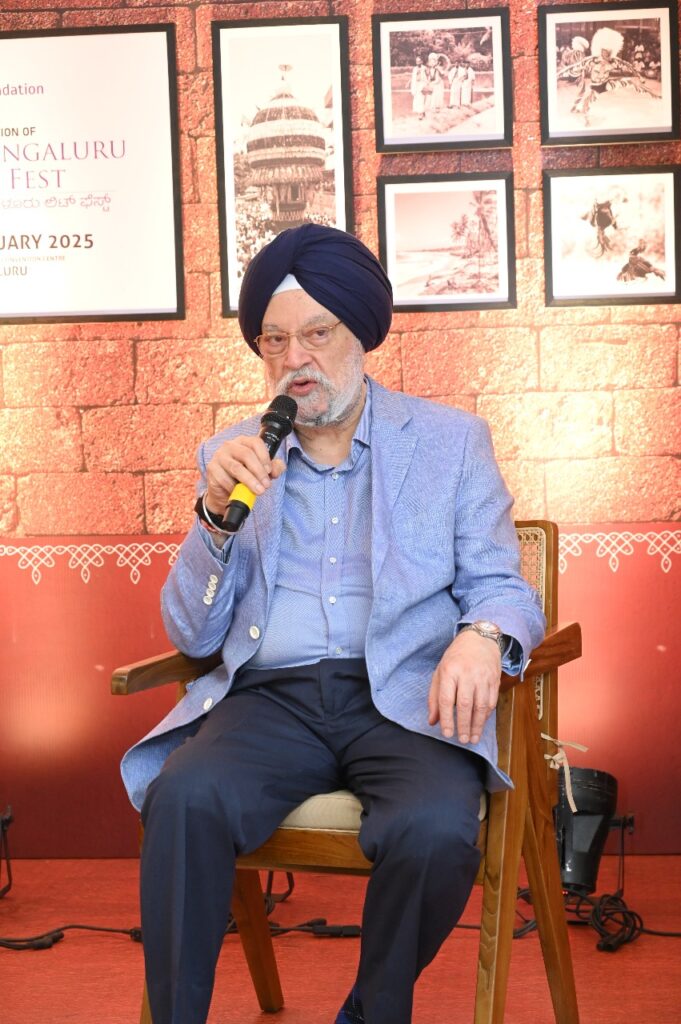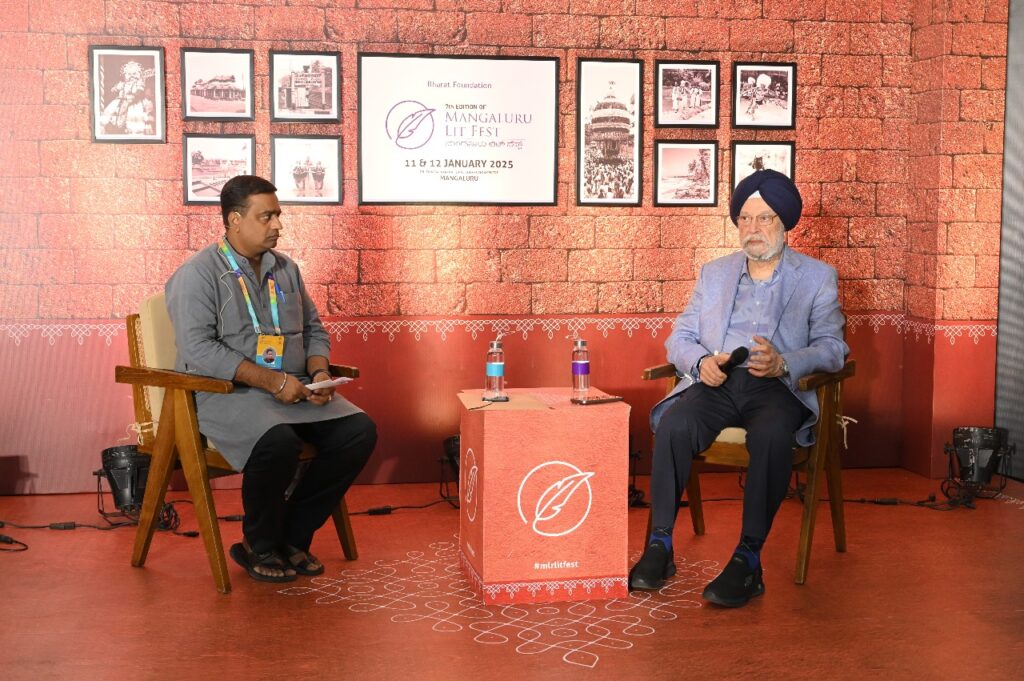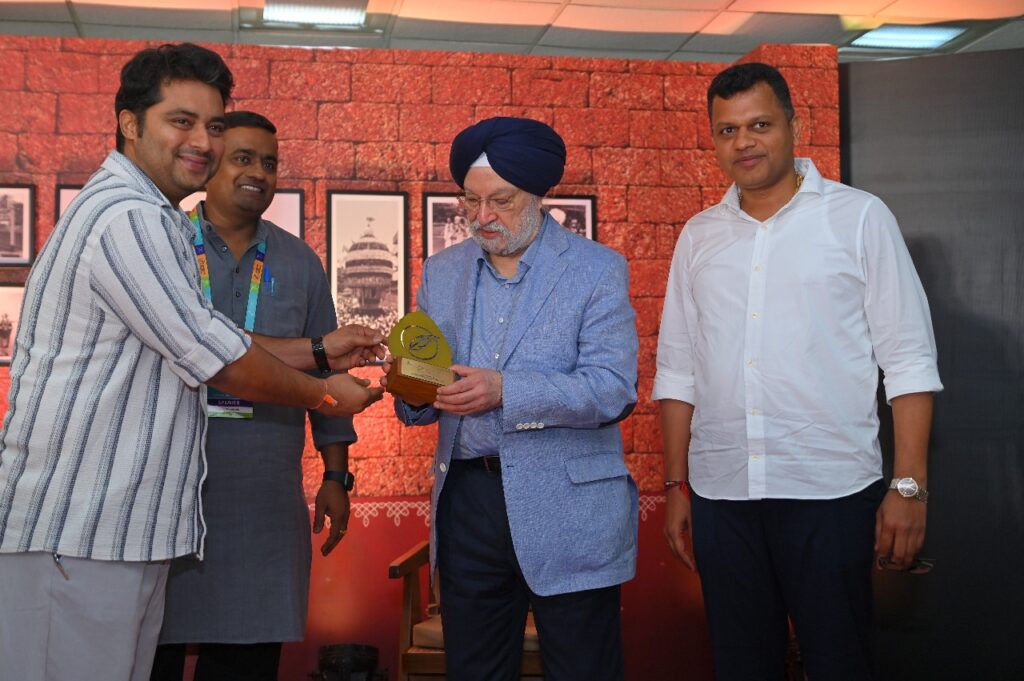
Union Petroleum and Natural Gas Minister Hardeep Singh Puri outlined India’s approach to balancing its immediate energy needs and long-term sustainability goals during the “Energy for Survival-Security and Climate” debate at the Mangaluru Lit Fest on January 11, 2025. Moderated by M.S. Nanda Kishor, Associate Professor at Pondicherry University, the session provided insights into India’s energy landscape and its path toward a green energy future.

Balancing Fossil Fuels and Green Energy
Acknowledging India’s reliance on fossil fuels, Mr. Puri emphasized that the country’s current energy security depends on crude oil, with imports meeting 85% of the demand. Despite this dependence, he highlighted that India is sourcing crude from 39 suppliers globally, compared to just 27 previously, ensuring diversification and resilience.
While crude remains essential for survival in the present, the Minister expressed optimism about India’s green energy ambitions. Efforts include achieving a 20% biofuel blend in petrol by 2025-26, five years ahead of the original 2030 target. He also underlined India’s progress in solar energy and its commitment to producing five million tonnes of green hydrogen.
Global Energy Dynamics and India’s Role
Mr. Puri provided a global overview of crude oil production, noting that supply is not a limiting factor. The Western Hemisphere, including Brazil, Russia, and the U.S., continues to produce substantial quantities of crude oil. India’s consumption is projected to rise to 7 million barrels per day, contributing a quarter of the global energy growth over the next two decades.
To meet this demand, India is enhancing its refining capacity. Mr. Puri explained that as green energy adoption grows, the same refineries could pivot to producing petrochemicals, ensuring long-term utility and profitability.
Commitment to Sustainability
India’s transition to sustainability is multi-faceted. Apart from expanding its biofuel production, the government plans to increase Compressed Biogas (CBG) and Compressed Natural Gas (CNG) plants. Mr. Puri emphasized the importance of planning for energy security to safeguard against potential disruptions, asserting that energy access is vital for governance and economic stability.
Future Prospects
Looking ahead, the Minister envisioned a future where biofuels could become a tradable commodity, reflecting India’s innovation in energy policy. By diversifying energy sources, promoting green alternatives, and expanding refining capabilities, India aims to secure its energy needs while contributing to global climate goals.
The session highlighted the government’s dual commitment to addressing immediate energy requirements and investing in a sustainable future, ensuring India’s economic growth and energy independence in the coming decades.

Dakshina Kannada MP Captain Brijesh Chowta was also present, underscoring the significance of energy debates in shaping national policy. The Mangaluru Lit Fest continues to serve as a platform for critical discussions on issues shaping India’s future.
